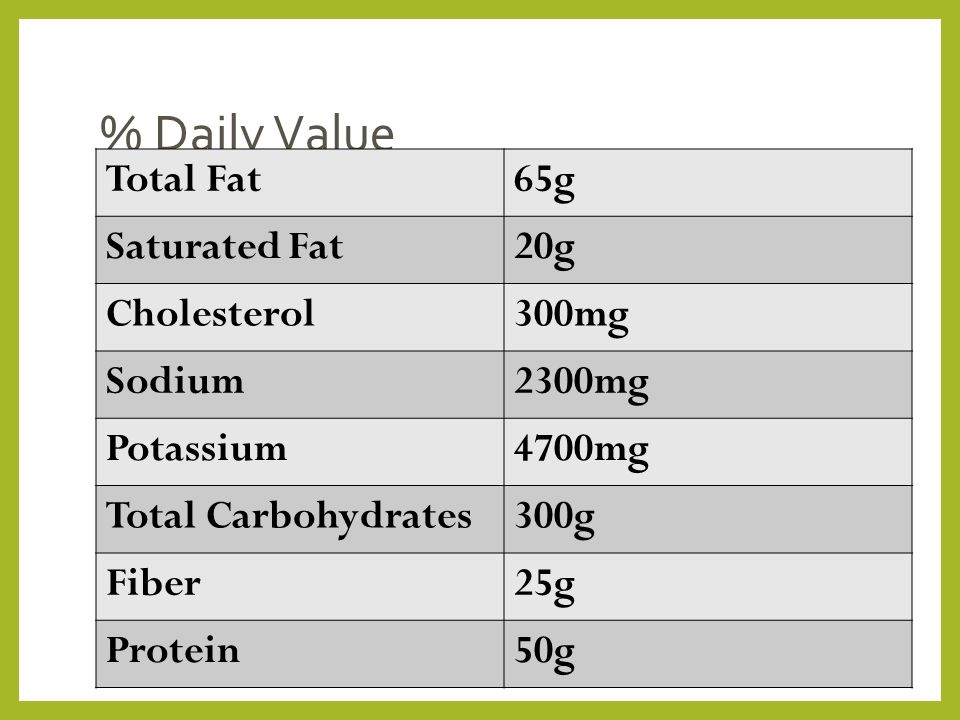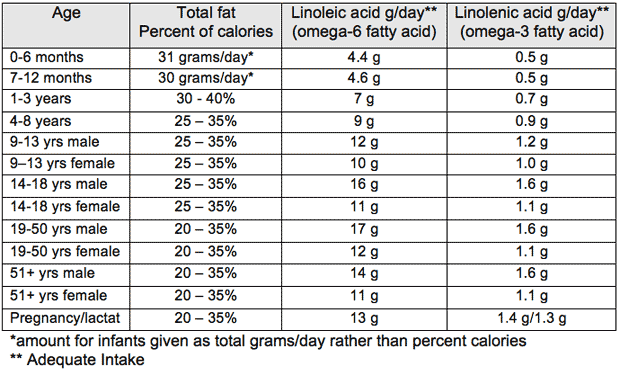The % Daily Value (%DV) shows how much of a nutrient is in one serving of the food. The %DVs are based on the Daily Values for key nutrients, which are the amounts (in grams, milligrams, or micrograms) of nutrients recommended per day for Americans 4 years of age and older.

Eating foods that contain saturated fats raises the level of cholesterol in your blood. High levels of LDL cholesterol in your blood increase your risk of heart disease and stroke.
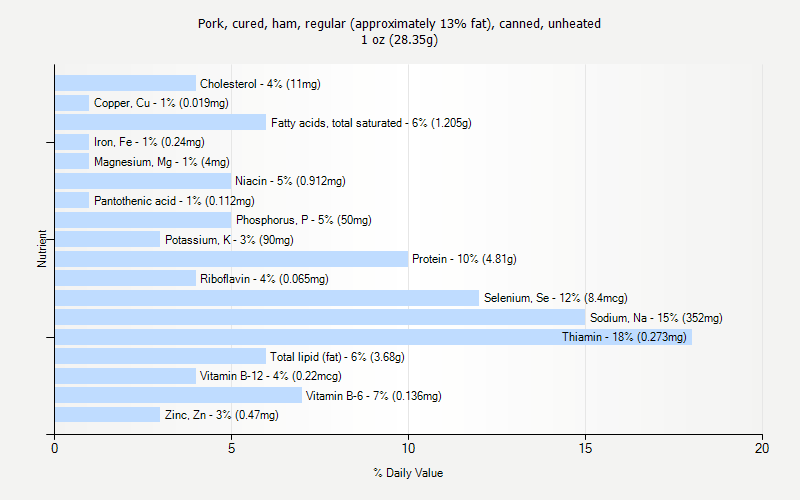
The majority of saturated fat comes from products such as beef, lamb, pork, poultry with skin, butter, cream, cheese and other dairy products made from whole or 2 percent milk. All of these foods also contain dietary cholesterol. Foods from plants that contain saturated fat include coconut
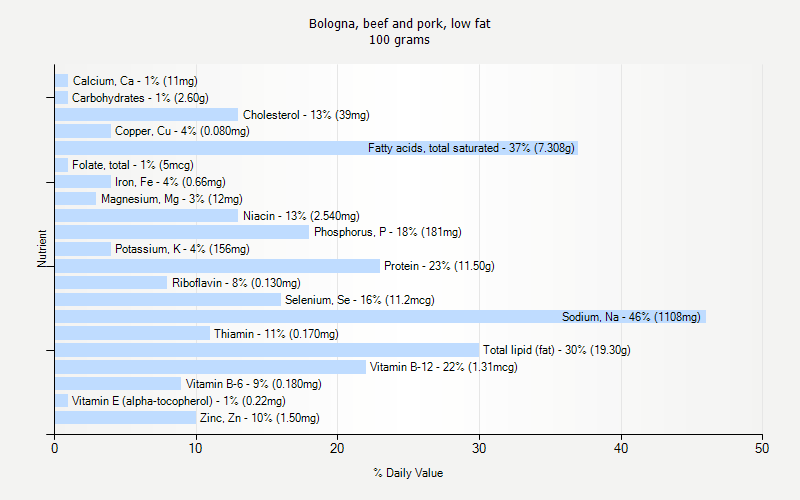
Foods that contain the daily limit of cholesterol. The amount of food in each photo represents your entire daily recommended value of cholesterol.
Nutrients – your body needs them! But, what are nutrients? The nutrients found in all foods and drinks provide nourishment for the body. This nourishment is in the form of:
Dietary fat has a bad reputation, but fat isn’t necessarily a bad thing. Learn how saturated vs. unsaturated fats stack up and what this means for you.
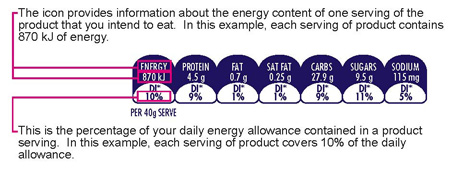
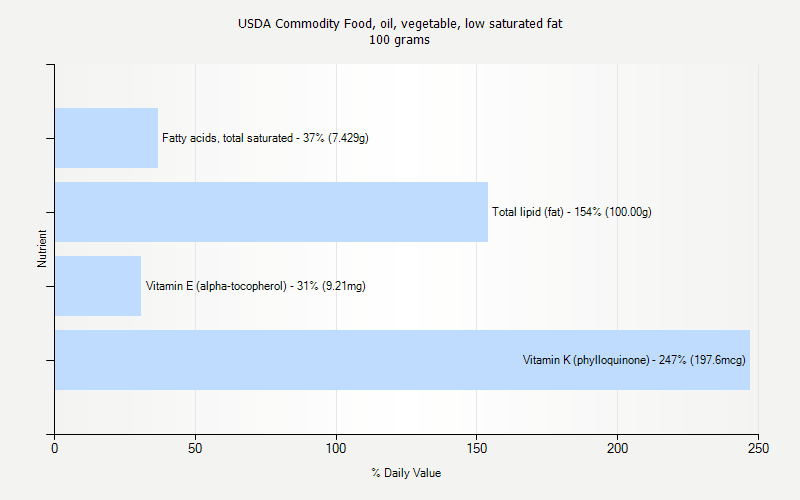
Double Quarter Pounder®: 100% fresh beef cooked right when you order. Layered with two slices of melty cheese, slivered onions and tangy pickles on sesame seed bun.

Free online tool to print out your own nutrition facts panels according to NLEA specifications. Input your own nutrition data or compute them with …
Saturated fat definition, a type of single-bond or vegetable fat, as that found in butter, meat, egg yolks, and coconut or palm oil, that in humans tends to increase cholesterol levels in the blood.

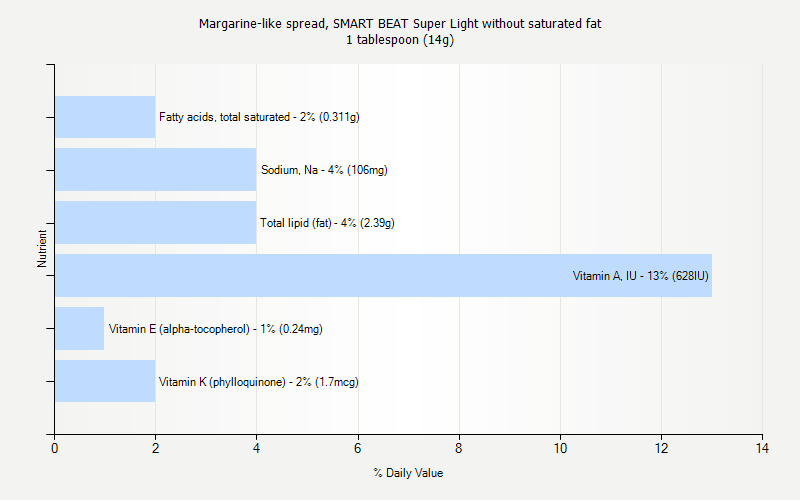
The intake of trans fats, which come mostly from junk food and products; saturated fat, mostly from dairy products and chicken; and cholesterol, coming mostly from eggs and chicken, should be as low as possible.
